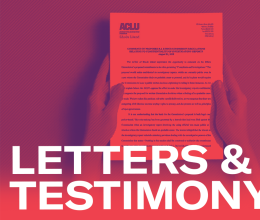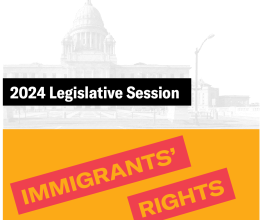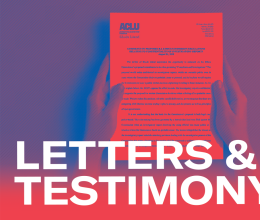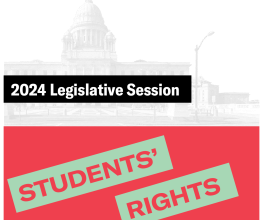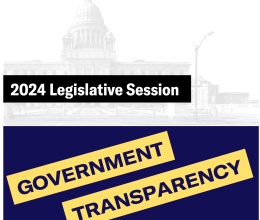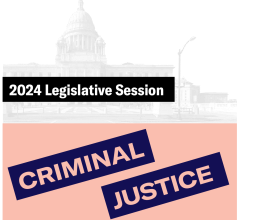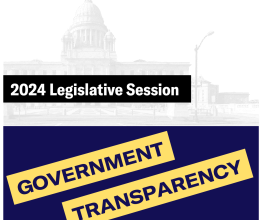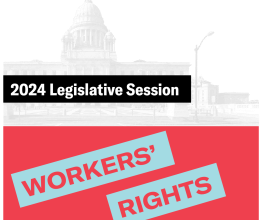The Rhode Island ACLU today filed a lawsuit challenging the legality of the controversial “immigration executive order” that Governor Donald Carcieri issued in March. Specifically, the lawsuit, filed in R.I. Superior Court by RI ACLU volunteer attorney Randy Olen, challenges the order’s requirement that all vendors and contractors with the state participate in the federal employment authorization system known as E-Verify.
The E-Verify program is an internet database run by the Department of Homeland Security that allows employers to verify the employment eligibility of new hires. However, since its launch, the E-Verify program has been riddled with significant flaws, and returns inaccurate information regarding the immigration and employment status of new hires – and particularly lawful foreign-born workers – at more than a minimal rate. Studies have also shown that the program has a substantial rate of employer abuse, leading to discrimination against potential employees perceived as “foreign.”
In response to the Governor’s order, the Department of Administration sent a notice to all persons and businesses on the state’s vendor registration list at the end of July, requiring them to certify within 45 days that they and their subcontractors are registered with, and use, the E-Verify program. The notice states that failure to comply will prohibit the recipient from obtaining business from the State in the future and may adversely affect their current contracts.
The ACLU lawsuit was filed on behalf of the Rhode Island Coalition Against Domestic Violence (RICADV) and two Rhode Island College professors – Ann Marie Mumm and Daniel Weisman – who have contracts with the state and object to participation in the program. The suit argues that the Governor exceeded his executive authority in having the order apply to private businesses, and that the order also violates detailed statutes in place governing the state purchasing process.
Noting that the program is being implemented without the adoption of any formal regulations, the suit further argues that implementation of the order, to the extent it is valid, violates the Administrative Procedures Act. That Act requires state agencies to provide advance public notice and an opportunity for public comment before adopting any rules affecting the public. The suit seeks a court order preventing enforcement of this part of the executive order. A hearing on the ACLU’s request for a temporary restraining order is expected within a few days.
Deborah DeBare, executive director of RICADV, said: “Our agency prides itself on its diverse staff. We are concerned that mandatory use of the E-Verify program may discourage some applicants, particularly foreign-born citizens, from applying, due to E-Verify’s high error rate. We also provide funds to a number of subcontractors and we will have to expend significant time and effort if we are required to assure that all of them register with and continue to use E-Verify.”
ACLU attorney Olen said today: “The Executive Order is profoundly unwise and ill-advised as a matter of policy and, at least in part, is defective as a matter of law. The E-Verify requirement far exceeds the Governor’s constitutional authority, essentially attempts to create laws which directly conflict with specific statutes properly enacted by the General Assembly, and creates an unconstitutional impairment of existing contracts. In addition, the Department of Administration’s issuance of directives to implement the order, which threaten those who refuse to comply with the loss of present and future contracts, cannot stand in light of the absence of notice and comment procedures required by the Administrative Procedures Act. Whatever the motives behind the Governor’s attempt to address the issue of illegal immigration may be, the Executive Order’s attempt to legislate by executive fiat is clearly unlawful.”
Plaintiff Weisman stated: “I strongly disapprove of mandatory use of the E-Verify program in light of its unreliability and the time required to ensure compliance with the program. I also oppose its use as a matter of public policy, particularly in light of its discriminatory impact on naturalized citizens and other foreign-born workers.”

